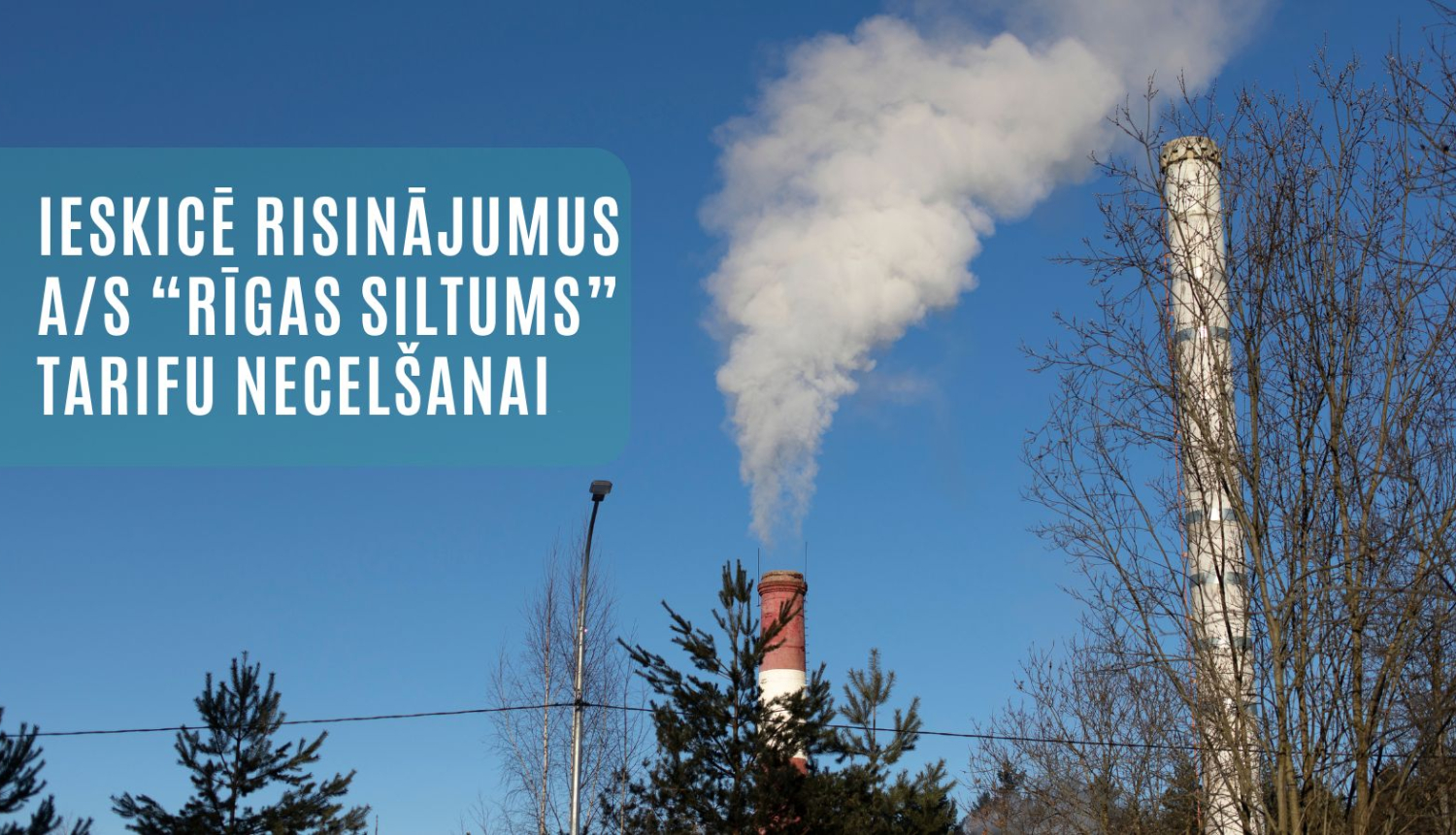Translated using ChatGPT service.
Guaranteed capacity procurements, the transition to a more efficient daily heat energy market, and promoting the use of heat produced in cogeneration – these are the possible solutions being considered to prevent a tariff increase by JSC "Rīgas siltums" (RS) this autumn.
This was discussed on Monday, July 7, during a meeting between the Ministry of Economics (MoE) leadership and the management of JSC "Rīgas siltums" as part of ongoing efforts to find solutions to prevent an increase in heat tariffs.
During the meeting, the parties identified several potential solutions to improve the heat energy market, including opportunities to maximize the benefits of using heat produced through cogeneration in district heating. This would help alleviate upward pressure on heat tariffs in Riga. After detailed calculations are completed by JSC "Rīgas siltums," a decision will be made on which of these solutions will be implemented to ensure a sustainable heat energy market model that provides maximum benefit to the residents of Riga. A meeting is also planned soon with the Competition Council to discuss the planned improvements in the heat market and their compliance with competition law.
"Preventing a heat tariff increase in Riga is one of the Ministry of Economics' current top priorities. As the shareholder of both JSC 'Rīgas siltums' and JSC 'Latvenergo', we will continue to come to the table until the optimal solution is found," emphasized Raivis Bremšmits, Acting State Secretary of the Ministry of Economics.
Currently, the valid heat energy tariff in Riga is €77.77 per megawatt-hour (MWh), while the actual cost per MWh was €79.82. Throughout the heating season, customers paid €74.17 per MWh. The difference between the actual costs and the amount paid by customers amounted to €5.65 per MWh, of which €3.60 came from an accumulated balancing component from the previous year’s revenues, while €2.05 represented uncovered costs, which will be carried over into the new tariff.
According to the new tariff project submitted by JSC "Rīgas siltums", it is expected that from autumn the tariff could increase to €88.10 per MWh, while consumers, taking into account market price changes, would have to pay €90.15 per MWh, which includes the €2.05 in previously uncovered costs.
The final decision on the tariff lies with the Public Utilities Commission (PUC), which will evaluate the submitted justification and calculations. The Ministry of Economics expects both JSC "Rīgas siltums" and the PUC to act responsibly and to find solutions that protect residents from unjustified cost increases, ensuring full transparency throughout the process.
Ekonomikas ministrijas
Sabiedrisko attiecību nodaļa
E-pasts: prese@em.gov.lv



